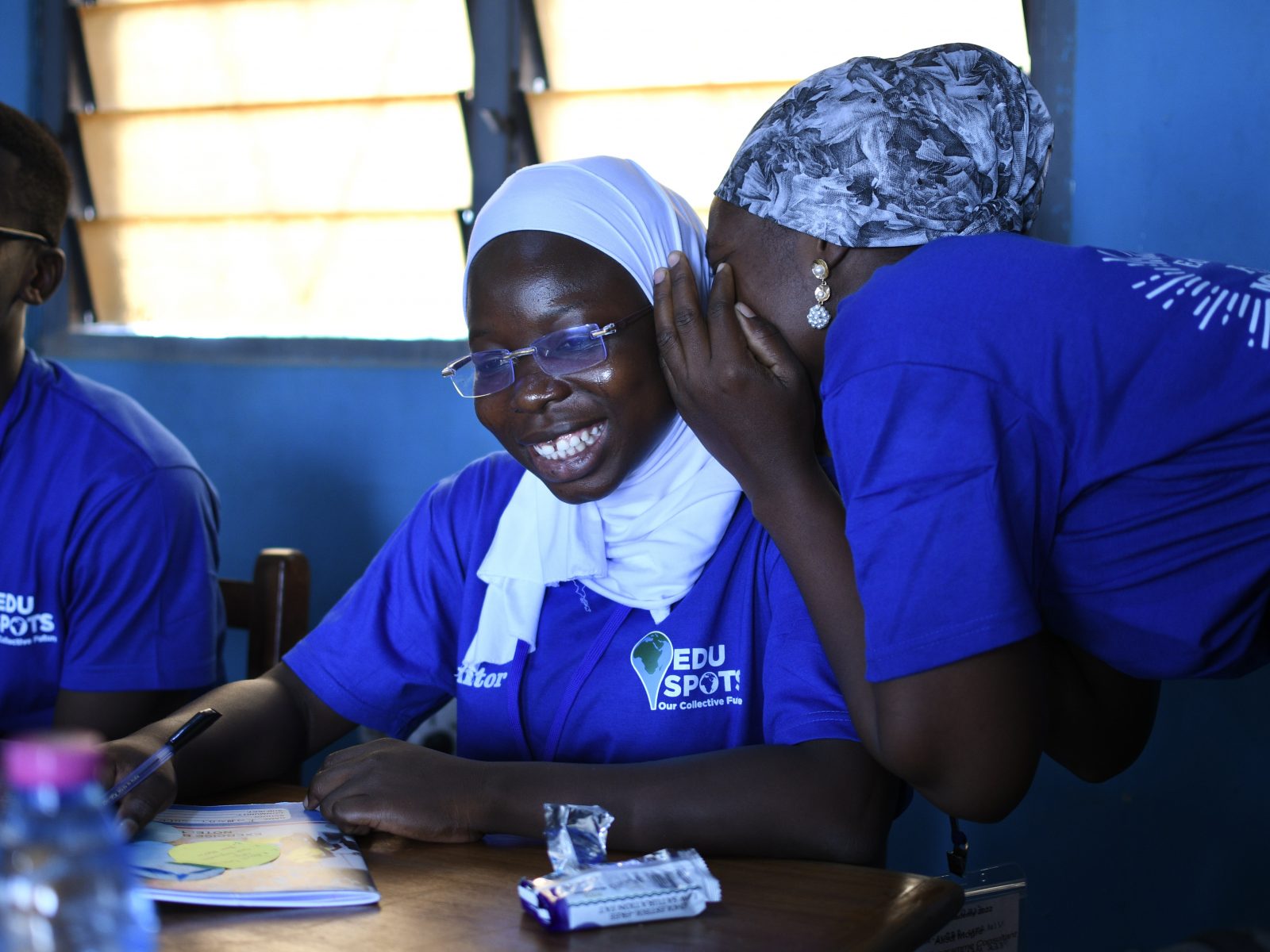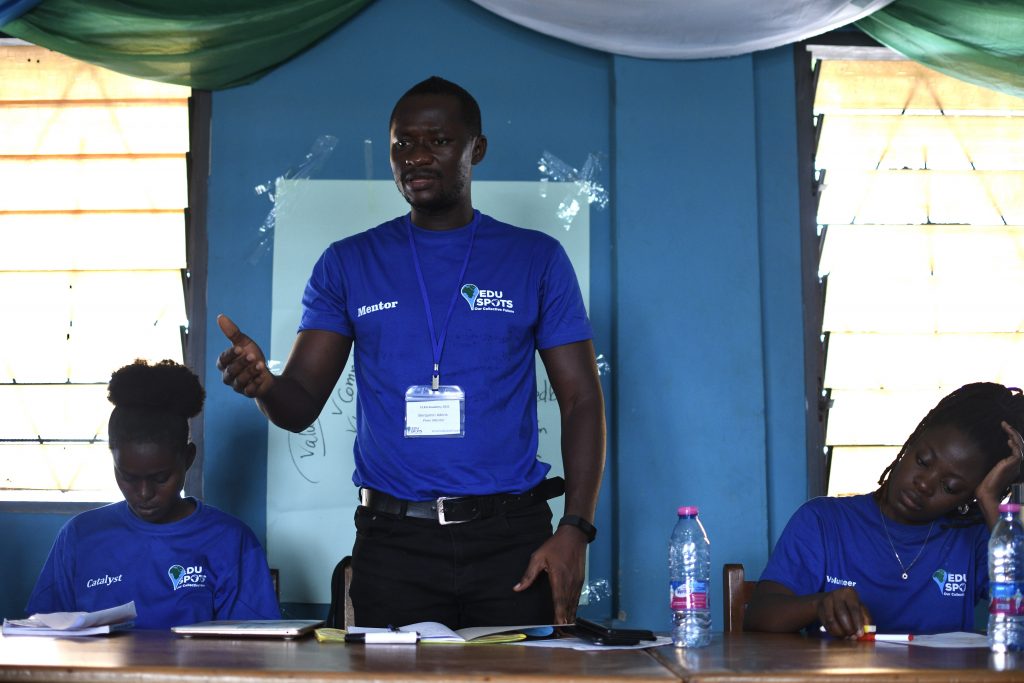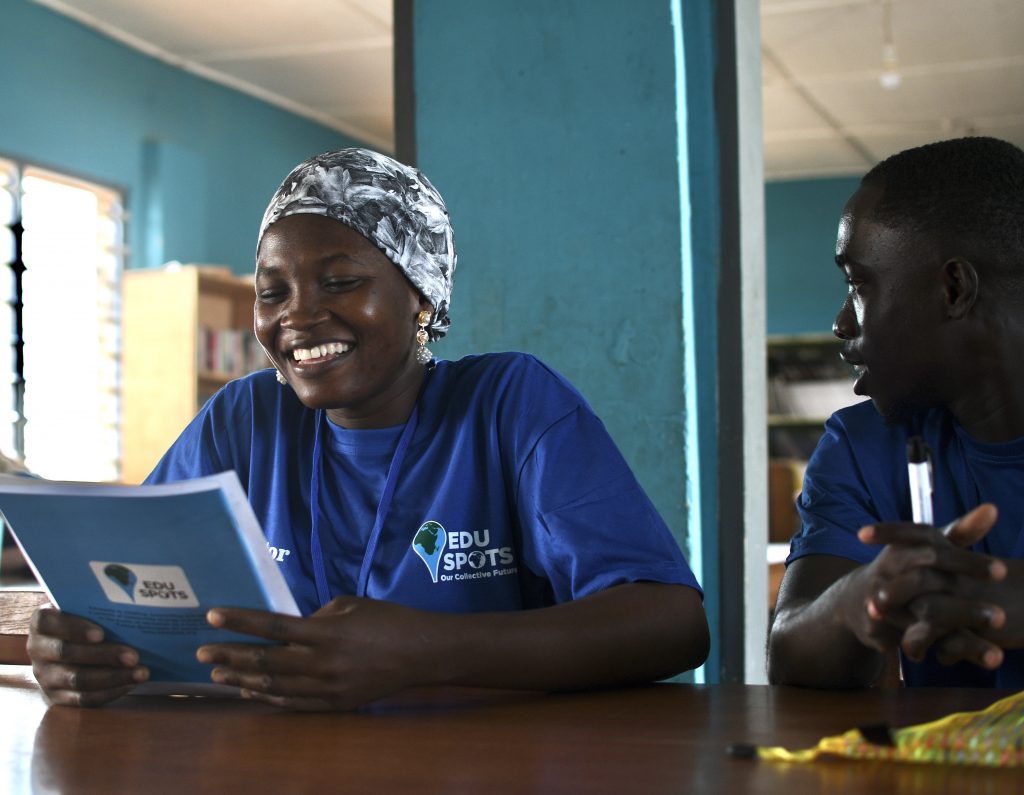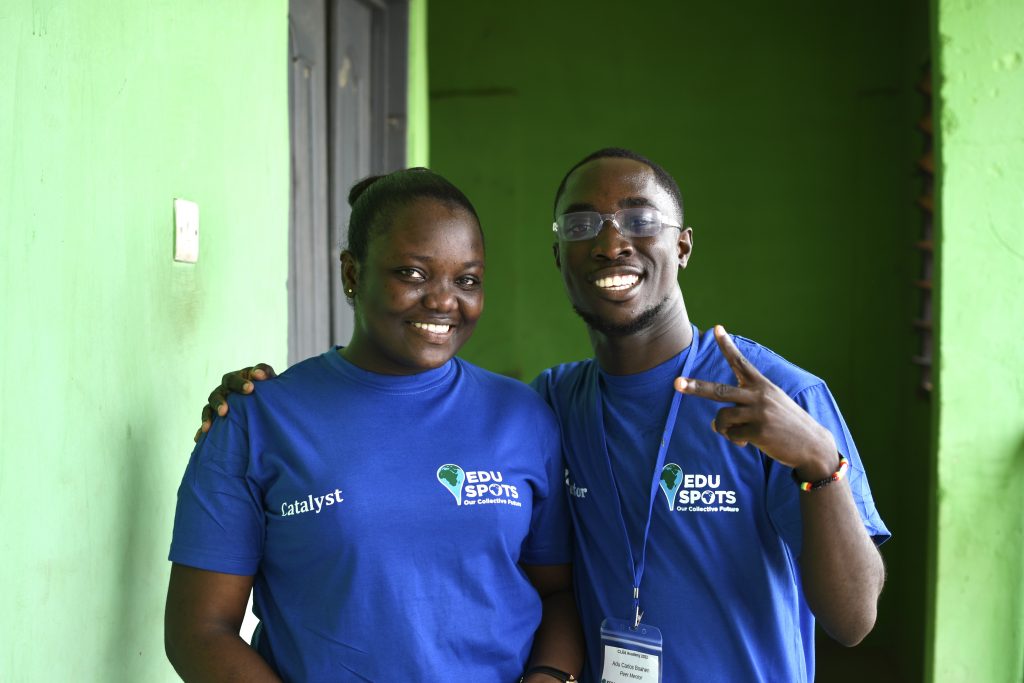Having guidance and support from someone you are closer to in terms of experience and age is invaluable. Peer mentoring is mutually beneficial to both the mentor and the mentee. Both parties tend to gain and build experience in new skills from the process. As part of the 2022 Community Leadership in Education (CLEd) program which is aimed at developing our catalyst’s knowledge, skills and mindset, we initiated the peer mentoring process to further develop previous CLEd graduates in coaching and mentoring.
During the 5-day residential CLEd Academy, 6 of the previous CLEd graduates were trained to be peer mentors for the 2022 CLEd catalysts. These peer mentors have been supporting and guiding the 2022 catalyst for the past 8-months now. They have aided the current cohort of catalysts through counselling and continuous support in developing a Spot action plan and its implementation and developing grant applications and reviewing other important documents among others.
Last week, a reflection session was organized for the peer mentors to share their experiences and the lessons they have learnt thus far. The peer mentors were excited to share how the peer mentoring process has helped them to grow individually in terms of personal and professional development. The peer mentors shared how they have been able to build skills such as time management, communication, problem-solving, emotional intelligence and leadership skills. They also shared how they have improved their listening skills and have become more reliable, patient, and empathic to people’s circumstances.
Below are some quotes from the session:
“I have learnt patience and empathy, trying to learn from others and standing in their shoes. You need to understand them, rather than complain and put a lot on them.”
“I have learnt a lot about communication. I’m able to stand in front of the elders in my community and explain to them everything we side to do in terms of the programme and at the Spot, and present this in the proper matter. Formally, there were things we did in front of elders that were termed as behaviour, but now I’ve learnt about body language. Also with the children, I’ve learnt how to talk to them in a way that will make them feel like we are with them and make them feel like the teacher is listening. The child will feel like my teacher is with me. Now whenever I am listening, my eyes are on the person speaking and my body language will show interest and commitment.”
It was amazing to hear the peer mentors describe the plenty of challenges they have faced in addition to the direct steps they took to overcome those challenges. Solving the challenges has made the more confident. Some of them shared how they have progressed to become a better version of themselves and are confident they can train prospective CLEd catalysts in future instead of Eduspots bringing in external people.
“I want to do more for EduSpots. We can easily lead sessions for the organisation ourselves without someone from outside coming in from outside to train the volunteers. EduSpots is all about volunteerism. I will help other communities build their skills in early years literacy so that they won’t see the literacy aspect as difficult for them.”
“My role at EduSpots as a Peer Mentor for Ambassadors is to make EduSpots known worldwide. Our Ambassadors are all from different places and countries, and I will use my skills as a mentor to make EduSpots known.”
The session ended on an inspiring note as peer mentors promised to continue to support EduSpots and will remain ambassadors for EduSpots and active Spot volunteers.






